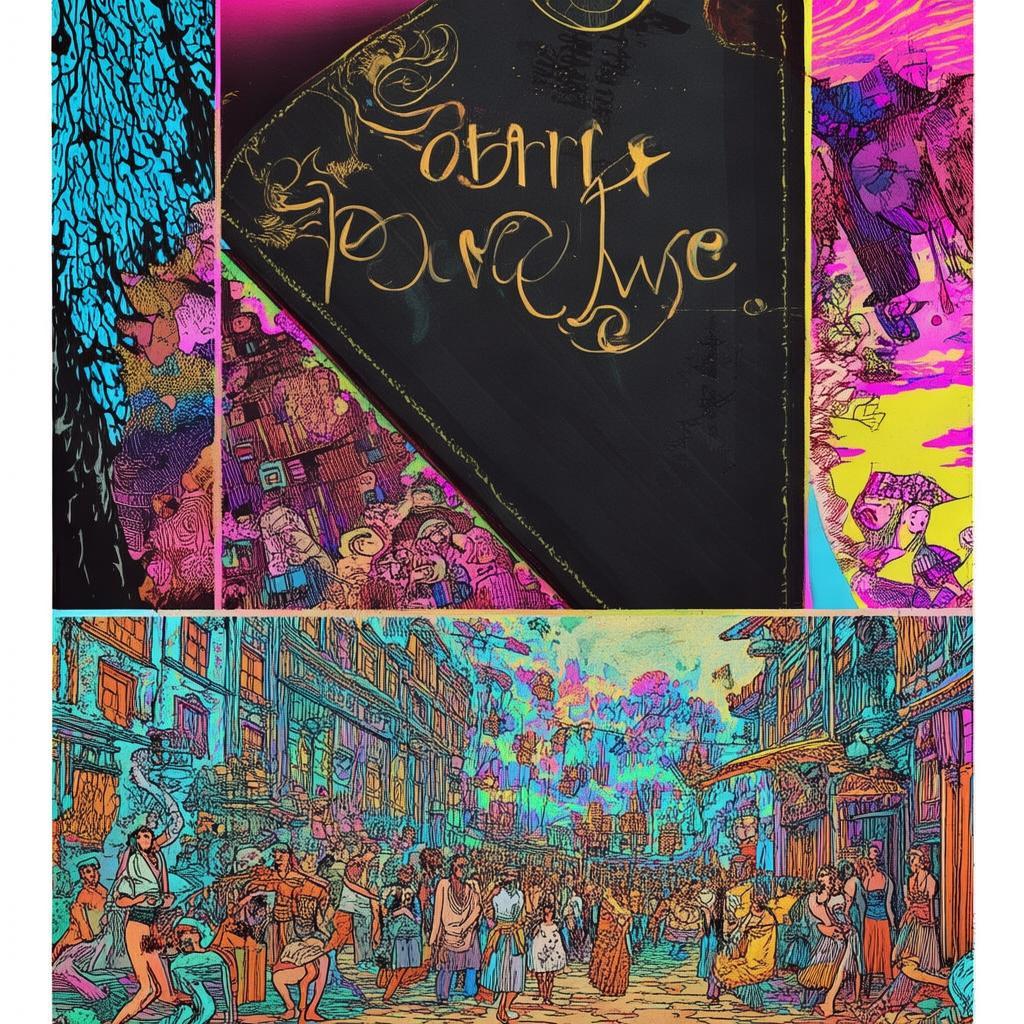The Dragon's Lament: A Sichuan Opera Reckoning
In the heart of Sichuan, where the ancient art of opera weaves the fabric of peace and tradition, there lived a man named Hua. His life was a symphony of the dramatic and the serene, his every breath a note in the melody of the opera house. But beneath the mask of the jingju, a form of Sichuan opera known for its elaborate costumes and dramatic performances, lay a story of betrayal and a heart yearning for redemption.
Hua had spent years perfecting his craft, his performances a testament to the power of the dragon, the symbol of strength and resilience in Sichuan opera. Yet, as the opening act of the Red Dragon's Serenade approached, a whisper of discord crept into the theater's walls. The harmony that had once been the lifeblood of the opera was now threatened by the very essence of its protagonist—the dragon.
The whispers spoke of a traitor among them, a man who had once been a member of the troupe, now a shadow casting doubt on the troupe's future. The rumors were fierce, as fierce as the red dragon's serenade itself. Hua, the dragon's avatar, felt the weight of these whispers, the chill of suspicion seeping into the very core of his being.
As the night of the Red Dragon's Serenade approached, Hua found himself at the center of a maelstrom of intrigue. The troupe's director, Lao Wang, a man whose eyes had seen too many performances to believe the whispers, called Hua to his side. "Hua," he said, his voice a mix of urgency and respect, "you must decide. Can you trust the one who would bring such discord to our home?"

Hua's heart raced, a drumbeat in his chest, as he pondered the words. He knew the dragon's legend well, its tale of power and its dance with the forces of nature. But was he the dragon? Could he be the betrayer? The weight of the question bore down on him, as heavy as the leaden stage upon which he danced.
In the days leading up to the performance, Hua sought answers in the only place he knew could provide them—the theater. He spent hours in the wings, watching the troupe rehearse, their voices a cacophony of emotions. There, amidst the chaos, he discovered a clue. It was a single, torn piece of paper, a note from the traitor, hidden beneath the stage. The note spoke of a past betrayal, a sin that had been swept under the rug for too long.
The revelation shook Hua to his core. He knew the traitor, a man named Li, who had once been his closest friend. Li had left the troupe years ago, his departure shrouded in mystery. But now, Hua realized that Li had been carrying a burden of his own, a burden that could tear the troupe apart.
As the night of the Red Dragon's Serenade drew near, Hua resolved to confront Li. He found him in the alleyways of Sichuan, a place as dark and mysterious as the opera itself. "Li," Hua said, his voice steady, "you have burdened yourself with a sin that does not belong to you. You must face it, not run from it."
Li, his face a mask of fear and anger, lunged at Hua, their fight echoing through the night. But in the end, it was not a physical battle that resolved their differences. It was a battle of words, of truth, and of forgiveness. As the dawn broke over Sichuan, Li confessed his guilt, his betrayal stemming from a misunderstanding that had grown into a mountain of resentment.
With the truth laid bare, Hua and Li returned to the theater, their reconciliation a testament to the power of forgiveness. The Red Dragon's Serenade was performed, its music a serenade to peace and understanding. The audience was moved, their applause a harmony that resonated with the healing of old wounds.
In the end, Hua realized that the dragon was not a symbol of power to be feared, but a symbol of resilience and the enduring strength of the human spirit. And as the last note of the opera faded into the distance, Hua knew that the peace he had sought was not just for the troupe, but for himself and Li.
The Red Dragon's Serenade had been more than a performance; it had been a reckoning, a confrontation with the dragon within. And in that confrontation, Hua had found his true self, a man who could dance with the dragon and the forces of nature, a man who could embrace the chaos and find the peace that lay within.
✨ Original Statement ✨
All articles published on this website (including but not limited to text, images, videos, and other content) are original or authorized for reposting and are protected by relevant laws. Without the explicit written permission of this website, no individual or organization may copy, modify, repost, or use the content for commercial purposes.
If you need to quote or cooperate, please contact this site for authorization. We reserve the right to pursue legal responsibility for any unauthorized use.
Hereby declared.









